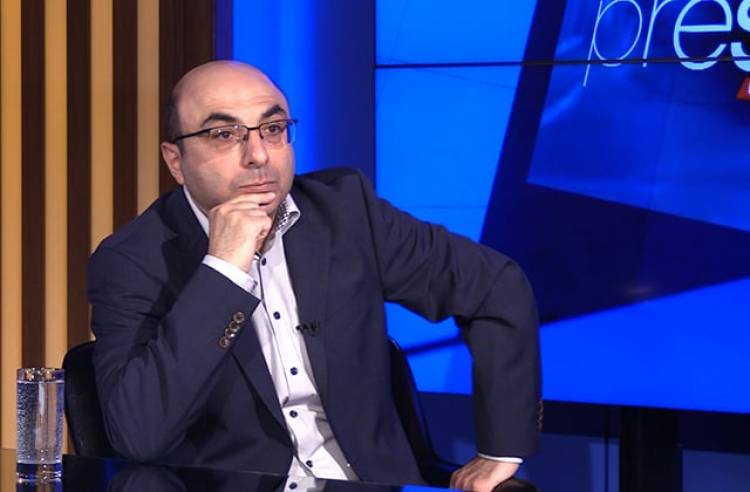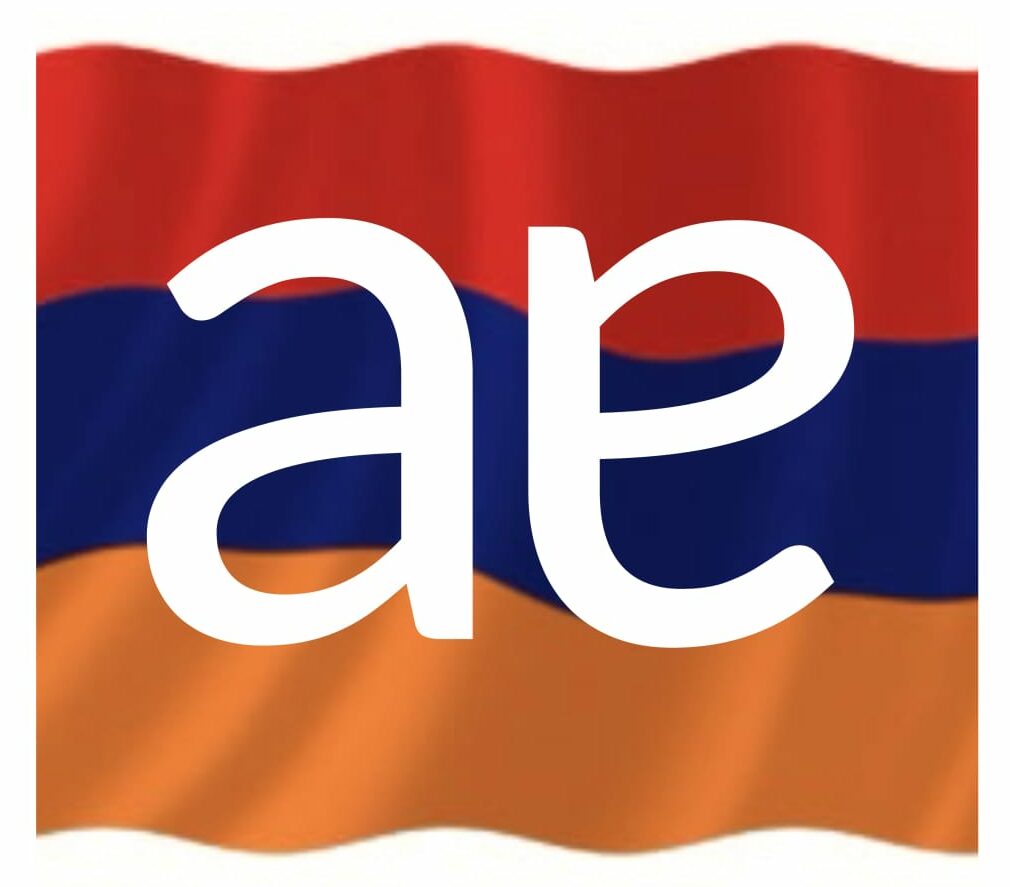
‘We have no right to accuse anyone if on one side there is a cyclist and his khashlama and on the other side there are critics of the cyclist and the khashlama,’ says Vahe Hovhannisyan, founder of the Alselection Projects group, the interviewee of hraparak.am.
– Please refer to the statements made by Putin in Baku, in particular, Russia’s historical over-excitement in the South Caucasus. What message was that, to whom?
– We need to understand that Russia is literally at war with the West as a whole: military operations, economic pressure, information warfare and more. Despite all the difficulties, Russia is the superpower that is trying to manage the risks, assess new ones and, of course, has a state tradition of strategic planning. Russia sees the South Caucasus both as a potential new source of crisis, and is therefore taking measures, and as an important direction for development and in the service of its strategic interests. It does the same in different directions to serve its national interests, so it is wrong to think that it is only interested in our region. Today, in the truest sense of the word, we are minutes away from World War III, which the superpowers are already talking about openly, and small states, because of their stupidity, because of gross historical errors, may suffer heavy losses, ethnic cleansing, genocide, the loss of the state, and this will be considered the ‘new normal’ under these conditions. Everything is happening before our very eyes and, unfortunately, we can feel it on our skin. Of course, Russia is sending a message to the states in the region, Iran is doing the same and the West is doing the same. But the most important thing is for the states in the region to get their act together.
– Armenian issues were on the agenda at the Aliyev-Putin meeting, and it has become a bad tradition to discuss our problems without us. What can this lead to when the authorities of the Republic of Armenia give preference to Western platforms?
– While we artificially deteriorate our relations with Russia and at the request of third parties, Azerbaijan deepens them. While we delude ourselves into believing that we are strengthening our relations with the West and moving towards Europe, Azerbaijan is becoming Europe’s most important partner, something that is forgiven by the ethnic cleansing in Artsakh. While we are congratulating ourselves on our supposedly good relations with China, Azerbaijan is signing a memorandum on strategic partnership with China. Georgia has a serious attitude, whose authorities, in the truest sense of the word, have been able to protect their country and their people from tragedies of considerable proportions.
Putin has his own agenda, which he will try to push forward at all costs, and, of course, he will try to maintain relations with all countries as far as possible. That is the role of the mediator. But if he sees that Armenia is continuing along its anti-Russian path, that Armenia as a state continues to be an insignificant thing, then he will do what he has to do without formality. The modern world simply leaves no other option. Here, instead of starting to approach the issue from the angle of a mythical ‘morality’, making demands of ‘our ally’, we should just make cold, rational calculations. emotions are only hurting us now.
– In the near future, Turkey is also due to receive a visit from the President of the Russian Federation, where developments in the South Caucasus are likely to be discussed, as well as global issues. What processes are underway in the region? Is Russia trying to regain its lost or weakened positions in the region, by acting as a counterweight to Turkish influence?
– It will be very difficult for Russia to regain the positions it occupied before the Artsakh war. Russia understands very well that this is simply not possible. Turkey already has a presence in the South Caucasus, the Shushi declaration has been signed and provides for cooperation between Turkey and Azerbaijan of a totally different quality, there is no Armenian Artsakh and many levers of influence over Azerbaijan have been lost. At present, Russia itself is dependent on the logistical and transit capacities of Turkey and Azerbaijan. On another front, however, the formation of the new architecture of the South Caucasus is being actively pursued today. There is no return to the old, but a serious struggle for the new. This gives us both new opportunities and new risks.
– And how could the Iran-Israel escalation expose us to new risks, given the strategic cooperation between Azerbaijan and Israel? How should Armenia react to these risks?
– The answer to that question is very clear. Iran plays an important role in the fact that we have not lost Syunik under this government. And any Iranian ‘activity’ on other fronts, the weakening of Iran’s positions, is a vital threat to us today.
– You mentioned Georgia, which is undergoing remarkable change and is looking towards Moscow. How will the possible scenarios affect the region and Armenia?
– I don’t agree with the statement that ‘Georgia’s perspective is towards Moscow’. Thanks to its authorities and elites, Georgia is behaving like a serious state, a society that has drawn deep conclusions from its past mistakes. Georgia’s current authorities serve and guide Georgia’s national interests, and the country is developing rapidly. If they had made the same mistakes as the Armenian authorities, they would find themselves in a situation almost identical to ours.
– The Russian Foreign Minister, Mr Lavrov, announced in an open text that Armenia was sabotaging the problem of unblocking regional communications and spoke in 2020 of the agreement of 9 November. On the one hand, this is a direct indicator of the fact that there is competition to control the so-called corridor in the region; on the other hand, in addition to the document on unblocking, there are other points not respected in the 9 November document. From this point of view, could Lavrov’s statement give Armenia a chance to rectify the situation?
– The new realities of the South Caucasus and the world as a whole mean that the roads have to be opened up to some extent. There is no need to reproach everyone for defending their own interests. We should blame ourselves for not being able to formulate our interests. It would be hard to find a more irresponsible and lazy government. Mr Lavrov is already speaking in undiplomatic language, which of course is not pleasant. And who is speaking to us in diplomatic language today? Was it the American O’Brian, or the European bureaucrats who made Aliyev their loyal partner in the background to the emptying of Artsakh? But let’s remember how many times we’ve hurt each other and ended up in the situation we’re in today. When there was an Armenian Artsakh, when there was a vital Latchine corridor, there were opportunities (and also obligations) to move forward, to find complex solutions that would secure our national interests, but we did not. What’s more, we’ve done just the opposite. Everything we’ve won, we’ve wiped out. If we have the impression that by abandoning the points of 9 November, which are important to us, we are forcing Azerbaijan and others to abandon their important point, then we are demonstrating our absolute inability to perceive inter-state relations and the situation. The outside world realises this very quickly. In spite of everything, if we have a serious government, we still have the opportunity to change the situation, to get out of the status of a sewer in the South Caucasus. We have the capacity to turn a lot of things around.
– In short, what should Armenia’s ‘duties’ be in this complex and constantly changing situation? Let’s imagine for a moment that instead of a ‘long life on a bicycle’, we had adequate power.
Main source: hraparak.am

